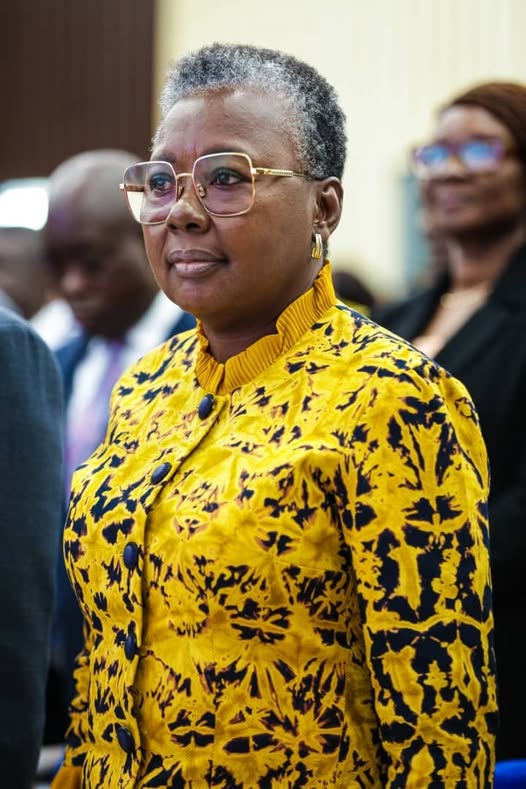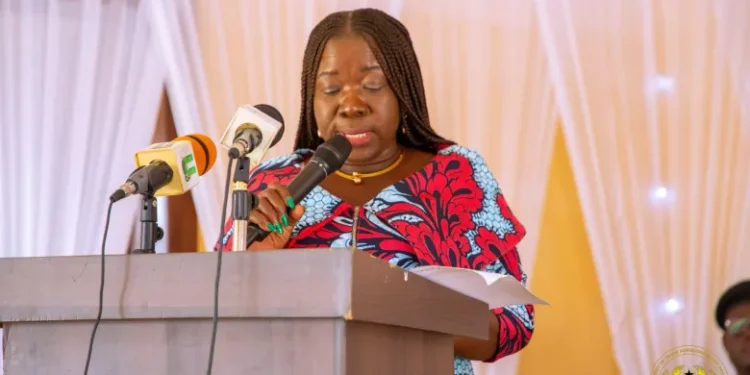The Minister for Fisheries and Aquaculture Development, Hon. Emelia Arthur, has detailed significant reforms in the management of premixed fuel distribution across the country, stressing transparency, efficiency, and accountability as the core of the new approach.
The update was delivered at the Government Accountability Series and focused heavily on restructuring efforts within the sector. A nationwide overhaul of landing beach committees is currently underway to eliminate what the Minister described as “inactive and ineffective” structures.
“We are reconstituting the landing bridge committees nationwide to eliminate inactive and ineffective committees. The new committees will be formed through transparent community-led processes to enhance local accountability”
Hon. Emelia Arthur, Minister for Fisheries and Aquaculture Development
These new committees will be aligned with the legislative instrument that governs the National Premix Secretariat. This reform seeks to give more control and oversight to coastal communities, ensuring that those responsible for distributing premixed fuel are directly accountable to the people they serve.

The goal is to restore public confidence and curb misuse of resources that has plagued the sector in recent years.
Until the beginning of 2025, only one Bulk Distribution Company (BDC) supplied premixed fuel to the fishing sector. The Ministry, however, has expanded the list of BDCs to six, ensuring a more “robust and reliable,” supply chain. Between February and June 2025, a total of 14.2 million litres of premix fuel were supplied.
“This diversification strengthens supply reliability and eliminates bottlenecks,” Hon. Arthur stated.
The supply chain has also been restructured to allow direct delivery from the Tema Oil Refinery to landing beaches. This change eliminates the role of intermediaries, thereby cutting down on delays, diversions, and corruption associated with middlemen.
To ensure historical accountability, the Minister explained that they are conducting a comprehensive audit of all landing beach committees that operated between 2017 and 2024. According to her, any committee or individual found to have misappropriated funds or engaged in fraudulent activity will face prosecution.
“Quarterly financial reporting and independent oversight mechanisms are being introduced to improve transparency,” the Ministry said, reinforcing the resolve to pursue reforms to their logical end.

Expansion of Automated Stations
By the end of 2024, only 31 of the 157 premix automated centres were operational. In response, Hon. Arthur said that the Ministry, working through the premix automation initiative, has installed 28 additional tanks and commissioned 11 new stations between March and July 2025.
These efforts bring the total number of operational stations to 42. “These stations include real-time monitoring systems, significantly enhancing transparency and delivering efficiencies,” she said.
The real-time systems are intended to offer oversight into stock levels and fuel disbursement in a bid to counter hoarding and illegal sale.
Going forward, the Minister explained prioritizing the activation of all automated stations with installed tanks and plans to complete the installation of all 300 stations originally agreed upon. “Real-time tracking and digital accountability will remain central to delivery processes,” she said.
The use of digital tools is expected to ensure end-to-end visibility in the fuel distribution chain, further limiting opportunities for mismanagement.

The Ministry has also shifted focus toward enforcement, particularly with industrial trawl vessels. Full EMS (Electronic Monitoring Systems) coverage will be rolled out across all such vessels to ensure “compliance with fisheries laws.”
Additionally, partnerships are being deepened with traditional authorities to strengthen enforcement of local fishing by-laws. These collaborations are designed to complement state monitoring efforts and ensure community-level ownership of compliance processes.
As the government administration pushes forward with its pledge to clean up governance structures, these premix reforms may become a bellwether for how entrenched inefficiencies and corruption can be addressed through systemic reform.























